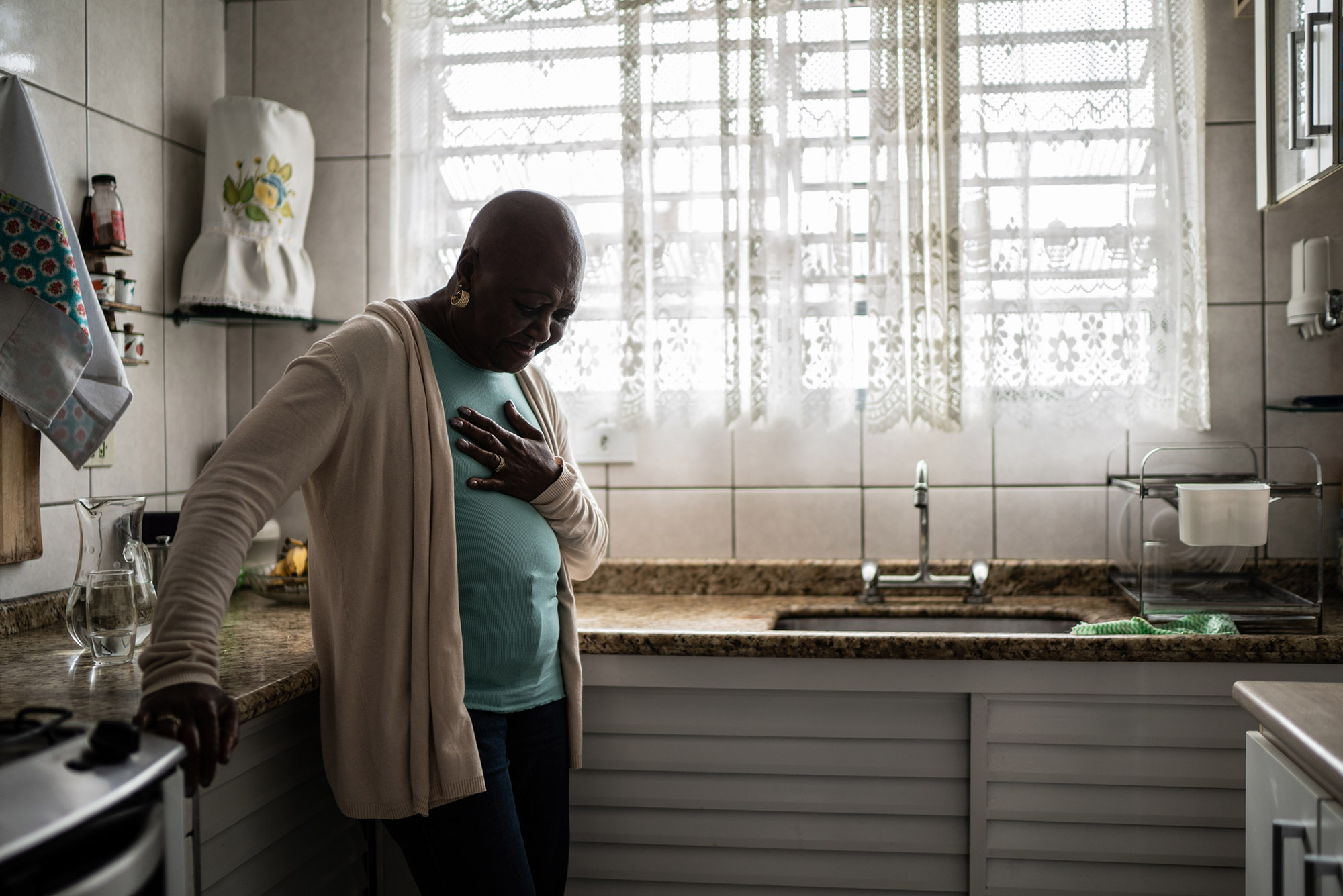

More than half of Black women in America aged 20 and older have cardiovascular diseases, according to the American Heart Association, and every year, 50,000 will die as a result. Some researchers have tied Black women’s increased risk of heart disease to genetics, others to higher rates of obesity and diabetes. A new Boston University-led study points to another key factor: experiences of racism.
A team of researchers who followed more than 48,000 Black women over 22 years found those who reported experiencing interpersonal racism in employment, housing, and in interactions with the police had a 26 percent higher risk of coronary heart disease than those who did not. The women were participants in BU’s Black Women’s Health Study, a more than 25-year effort to track the health of 59,000 women in the United States.
“This is the first longitudinal evidence that perceived racism is associated with increased risk of coronary heart disease,” says Shanshan Sheehy, a BU Chobanian & Avedisian School of Medicine assistant professor. “Racism has a real impact on the heart health of Black women.” Sheehy presented the findings at the American Heart Association’s Epidemiology, Prevention, Lifestyle & Cardiometabolic Health Scientific Sessions 2023.
The research kicked off in 1997, when participants—then with a mean age of 40.5—answered a series of questions about their experiences of racism. The first set of questions aimed to get at instances of perceived discrimination and unfair treatment while job hunting or at work, when trying to rent or buy a home, or during a law enforcement stop or search. Another set looked at experiences of interpersonal racism in everyday life: whether the women felt they’d received poorer restaurant service, been looked down upon, or treated as unintelligent, dishonest, or as a threat. Throughout the next 22 years, researchers tracked the women’s wellbeing with biennial mailed and online health questionnaires. All started the study with apparently healthy hearts; by 2019, 1,947 had developed coronary heart disease.
Although the research team discovered an association between a higher probability of heart disease and self-reported experiences of racism in employment, housing, and interactions with the police, they found that racism in everyday life—at a store, in a restaurant—was not linked with an increased risk. Sheehy suspects that’s because while the different types of racism are pernicious and damaging, their relative consequences are varied. Someone discriminated against in a store, she says, may be able to draw on coping mechanisms—like talking with a friend—but missing out on a promotion or a mortgage is much harder to tune out.
“When we think about how racism impacts our health, it’s a psychosocial stressor,” says Sheehy, who’s also affiliated with the BU Slone Epidemiology Center. “It increases your blood pressure, your level of inflammation—all of these biological mechanisms increase your risk of coronary heart disease.”
In past papers, Black Women’s Health Study researchers have also shown a connection between perceived experiences of racism and obesity, reduced cognitive function, insomnia, preterm birth, and many other afflictions. Sheehy and her colleagues say one next step for the coronary heart disease research is to take a deeper dive into the impact of structural racism.
“Structural racism is real—on the job, in educational circumstances, and in interactions with the criminal justice system,” says coauthor Michelle A. Albert, American Heart Association president and a University of California at San Francisco professor of medicine. “Now, we have hard data linking it to cardiovascular outcomes, which means that we as a society need to work on the things that create the barriers that perpetuate structural racism.”

